The evolution of advertising at Goafest 2019
Hosted by the Advertising Agencies Association of India (AAAI), in association with the Advertising Club, Goafest is an annual three-day celebration of the best advertising and media work, honouring creativity and campaigns across markets, mediums and languages. We bring you the highlights from this year’s event held from 11 to 13 April.
03 Jul 2019 | By PrintWeek India
Amazon, Flipkart and Myntra discuss changing marketing trends
On Day One of Goafest 2019, Amazon’s Ravi Desai, Flipkart’s Vijay Sharma and Myntra’s Achint Sethia discussed how the role of marketing has changed.
Desai was the first to take to the stage and discussed some shifts in marketing. The director of mass and brand marketing at Amazon India first stated how the brands’ target audience has changed.
“First, we used to write pen-portraits of a broad cluster. Today, that model doesn’t work. There is a specific person identified through his or her brand behaviour and that’s the target,” he said.
He then stated the importance of product experience in the marketing funnel before talking about the importance of ‘moments’.
He explained, “Earlier, it used to be about prime time to capture eyeballs. Today, moments matter. Marketers have to think of key moments that matter to the customer.”
The next point he spoke about was measurement and how that has changed over the past few years. “People used to look for ROI through brand tracks. In this day and age, marketers have to measure demonstrated behaviour and look for the next step,” said Desai.
He added that nowadays people don’t look for like-to-like products as competition, instead they look for solutions.
He finished his talk by saying, “Brands used to get customers to be loyal and then reward them. In today’s day and age, look at democratising benefits and urge everyone to join.
Vijay Sharma, associate director, brand marketing and head digital media, Flipkart, was next on the dais to explain how one can create a brand for tomorrow by stating a perspective of building a brand for mobile in India.
He said, “It’s a great time to be in the creative and media industry. The means and ways of telling stories are changing. The way in which advertising is being told is also changing. The big brands of the past are not the top five anymore. The likes of Apple and Google are now the top brands.”
Amazon’s Ravi Desai, Flipkart’s Vijay Sharma and Myntra’s Achint Sethia discuss how the role of marketing has changed
He added how differentiation is very little between products and how the customer has evolved over the past few years. “There’s over exposure and over-choice. This leads to marketers getting overwhelmed. Consumers are spending a lot more time with media and this has led to attention spans reducing. The way they interact with brands is also changing,” said Sharma.
He spoke about a pressure for brands to advertise every day in the digital era to stay in touch with the consumer which has led to marketing evolving.
He explained, “It’s all about managing a complex world. We, at Flipkart, have appointed various agencies for different kinds of work. What’s needed to create the right brand experience is a mixture of brand design and technology.”
Achint Sethia, vice-president, marketing, Myntra, gave the fashion perspective. “We are talking to aspirations of customers in terms of outfits. When we look at consumers, it’s about offering them fashion choices. They are keen to learn and get inspired when it comes to fashion. You have to understand the customer, who is impatient and needs gratification. People are overwhelmed by storytelling and they continue to seek it.”
Principles in frugal innovations
Authors of the books Jugaad and Frugal Innovation, Navi Radjou and Jaideep Prabhu took to the stage on the final day of Goafest 2019. Their book, published in 2012, studied the unique way of innovating and featured several entrepreneurs and global MNCs. Across all these innovations the authors looked at the ‘Jugaad’ factor.
Radjou believes that brands and marketers can also take a tip from the jugaads. “Marketing campaigns can also work on this jugaad mindset. They’re not only frugal ways of marketing but relevant too. Now, we are also seeing the West ape these jugaads.”
Prabhu explained why the West is looking for these ways of saving. “Post the financial crisis, the West was looking to do more with less. We are seeing small teams of four people do things like a government or big organisations would do earlier. The USD 30 Raspberry Pi computer was an example. Only a few thousands were produced, but the orders surpassed a million. They were then used for big impact things in the healthcare industry.”
He went on to show how global companies like Ikea, Levi’s and Unilever are innovating by recycling their products and also coming up with other means to reduce wastage. He said, “Levi’s came up with innovations where they recycled waste to come up with ‘garbage jeans’. They also looked at conserving water with their CEO Charles V Bergh urging people to reduce the number of times they wash their jeans. Unilever, too, set a target of growing double by reducing waste by 50%. The financial consequence is that the company’s shares have doubled.”
He also showed an Ikea campaign which looked to reduce fuel consumption. Radjou then spoke about the 17 Sustainable Development Goals set by the United Nations. He stated that India has a role in at least 50% of these and so India will benefit first, before the world.
The duo ended their session by listing six principles of frugal innovation-engage and iterate; flex your assets; create sustainable solutions; shape customer behaviour; co-create with ‘prosumers’; make innovative trends.
Time for business leaders to prove as agents of change
Matt Eastwood, global chief creative officer, McCann Health, started his talk with a quote by the artist Banksy: “The thing I hate the most about advertising is that it attracts all the bright, creative and ambitious young people, leaving us mainly with the slow and self-obsessed to become our artists. Modern art is a disaster area. Never in the field of human history has so much been used by so many to say so little.”
He changed the quote by replacing the word hate with love and stated how he looked forward to working with these bright, creative and ambitious young people.
He then shifted the topic of the talk from advertising to the world stage. “We are going through a period of uncertainty. We’re seeing problems with the US leaders, there’s Brexit, there are concerns about human rights, women and children issues, climate change and more,” said Eastwood.
Quoting a research conducted by Deloitte, he added, “One third of the youth were optimistic about their country’s overall social and political situation improving. That’s concerning because two thirds of the population don’t believe anything will improve. But, their concerns also give hope as the research also reveals that this is the ideal time for business leaders to prove themselves as agents of positive change.”
He then went on to pull out one of Bill Bernbach’s quotes: “All of us who professionally use the mass media are the shapers of society. We can vulgarise that society. We can brutalise it. Or we can help life it onto a higher level.”
Eastwood then spoke about how CSR has moved on from being a buzzword to one that is a business tenant, and stated that the companies that do it well will eat the lunches of those who wouldn’t.
He then went on to show examples of pieces of work that have followed the ‘do good’ theory.
The first example was Kwality Dairy. “The brand wanted to make a gigantic difference to people’s life and in particular those of children. We didn’t make a TVC or a print ad. We instead made something more lasting. The core of this was a creative act,” Eastwood said.
The second example was the MGM Resorts. The agency rolled out a Universal Love album, a collection of love songs re-imagined to be more inclusive. This video was shot on location at Bellagio, Las Vegas on 26 March, the anniversary of the first same sex marriage license issued in the US. Universal Love is a project by MGM Resorts.
The third example was Microsoft Xbox done for Microsoft for the Super Bowl.
The next 100-million customers for Netflix will come from India.
(l) Navi Radjou, (r) Jaideep Prabhu, authors of the books Jugaad and Frugal Innovation
On the second day at Goafest 2019, Barry Wacksman, vice-chairman and global chief strategy officer of R/GA, spoke about transforming at speed. The most overused word of 2017 was ‘disruption’, he said, adding that in 2018, the buzzword was ‘transformation’. “It’s inspiring and represents a creative revolution,” he said.
Companies and brands that predate the digital revolution are struggling. Growth has stopped for the Fortune 500 companies. Tech opened the door to a new crop of asymmetrical competition were his primary observations to kickstart the address.
“The rise of digital direct-to-consumer brands has captured the hearts and minds of consumers,” he said, adding that the challenge was on how to move from being disrupted to being the new disruptors.
For the advertising business, the message is loud and clear in a 32-point font size. “The audience for ad supported media is declining fast,” he said. Netflix, the OTT platform that has zero advertising predicts that its next 100 million customers will come from India, he added, driving the point closer home.
How should the advertising industry escape being disrupted and take on the mantle of being a disruptor? According to Wacksman, this is possible by playing in the three areas of business transformation, experience transformation and marketing transformation.
The first case study was how a Brazilian financial services provider excelled in business transformation. In Brazil, a study cited that young consumers would rather go to the dentist, than a bank. But Next bank cracked the code with their ad.
The second case study he showed was in the field of experience transformation. In 2018, Nike’s Air Jordan brand, Snapchat, Darkstore, Shopify and R/GA all teamed up to create a Snapchat lens of Michael Jordan and social commerce experience at All-Star Weekend. The shoe was sold out on social eCommerce in 23 minutes and deliveries happened by the time the game was over.
The third case was on marketing transformation of the Samsung Galaxy Note, particularly after the disaster of the Galaxy Note7. How did Samsung make a comeback with the Galaxy Note9 with a Galaxy Skin character in a game? The Fortnite Galaxy Skin was exclusive to all those who purchased the Galaxy Note9 or Tab S4. Once redeemed on your Galaxy Note9 or TabS4, the skin was linked to the Epic Games account and could be used on all compatible Samsung Galaxy devices and other platforms. It could only be redeemed once on each individual device. In some cases, the skin was selling on eCom sites for 10 times the price of the phone.
I am the nation’s second best public speaker
Sporting a sleeveless jacket, in a stark resemblance to the nation’s best public speaker, A Velumani, creator and managing director, Thyrocare, took the audience of Goafest 2019 on a trip down memory lane about the growth trajectory of his company.
In a session packed with punchlines, with Velumani announcing that his punchline was coming, he said he had three MBAs. First, the early stages of his life in CoiMBAtore, when he married a girl from KuMBAkonam and when he settled down in MuMBAi.
The man who built a ‘brand around a gland’ mentioned that his success was in spotting the opportunity. “If you see the opportunity, you will not see competitors. My university is my village. We had the luxury of poverty, stamina, courage, delta,” he said, speaking about his humble beginnings in the south of India. He said that his mantras to success were guts that led to grit which led to growth and finally attained glory.
Matt Eastwood, global chief creative officer, McCann Health
Speaking about his first experience with the corporate world, he said he was rejected by dozens of potential employers for lack of experience when he was seeking his first job after graduation. Now he claims that at his organisation, Thyrocare, for each of the 1,500 employees, he is the first employer.
Speaking about the origins of his organisation 25 years back, he pointed out that he managed it through both price and concept disruption before the telecom companies mastered the art. He said he has indulged in a ‘romance with risk’ throughout the journey of his organisation. “If you do it the other way, risk with romance, it will result in a #Metoo,” he said.
(Courtesy Campaign India)


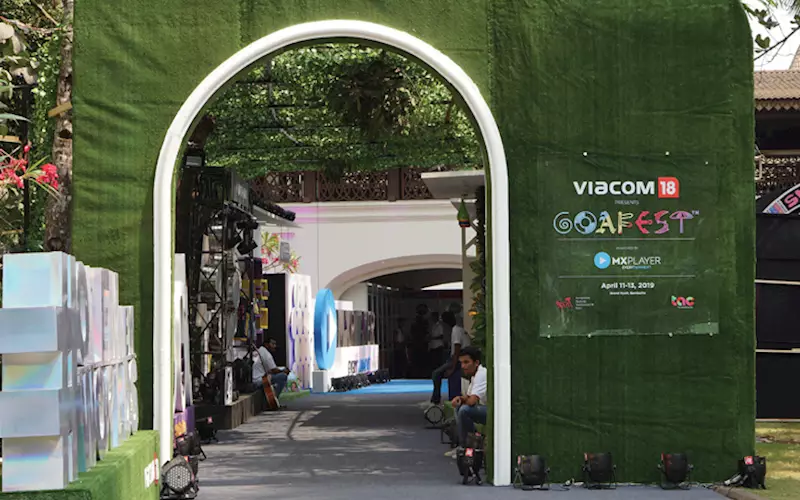
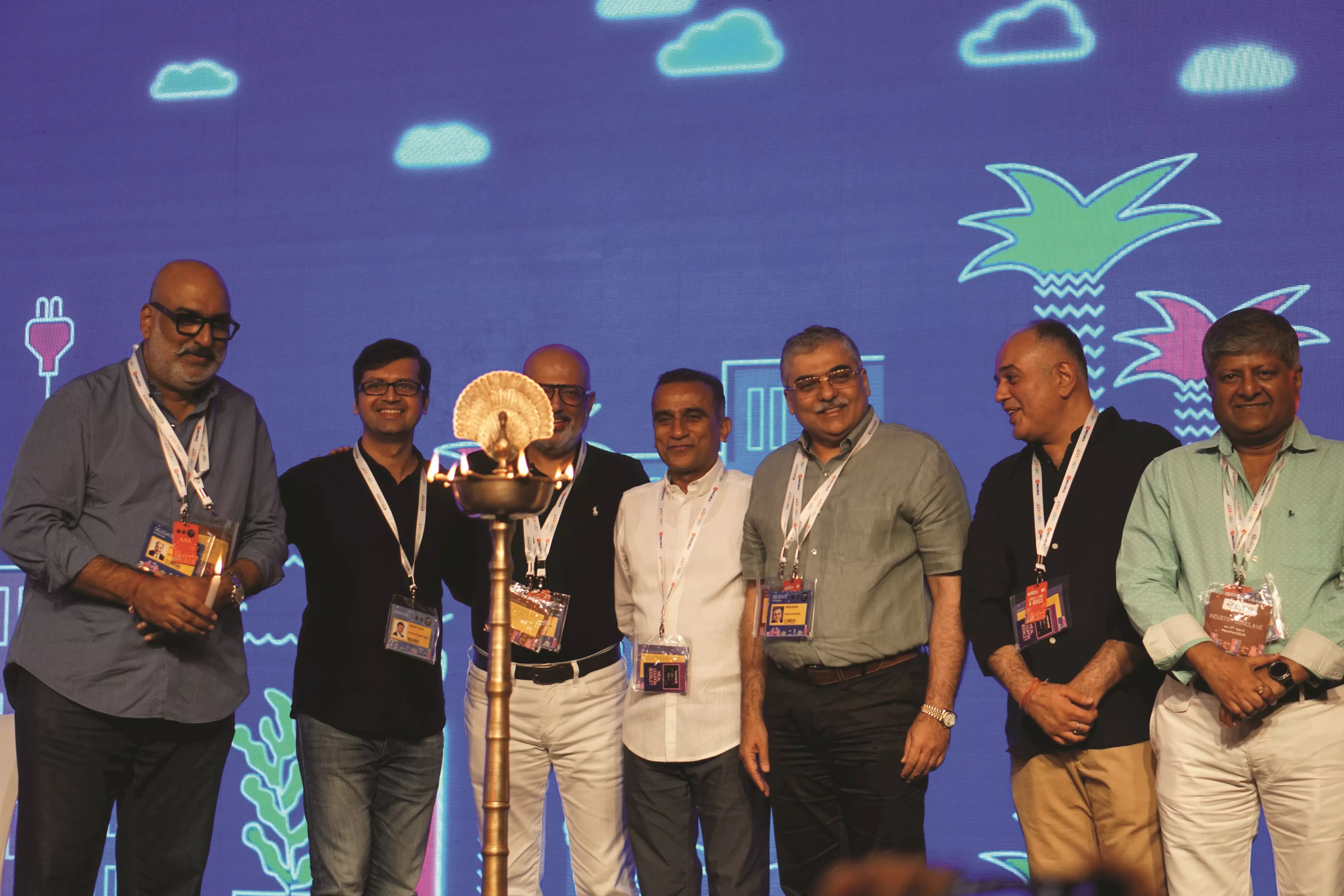
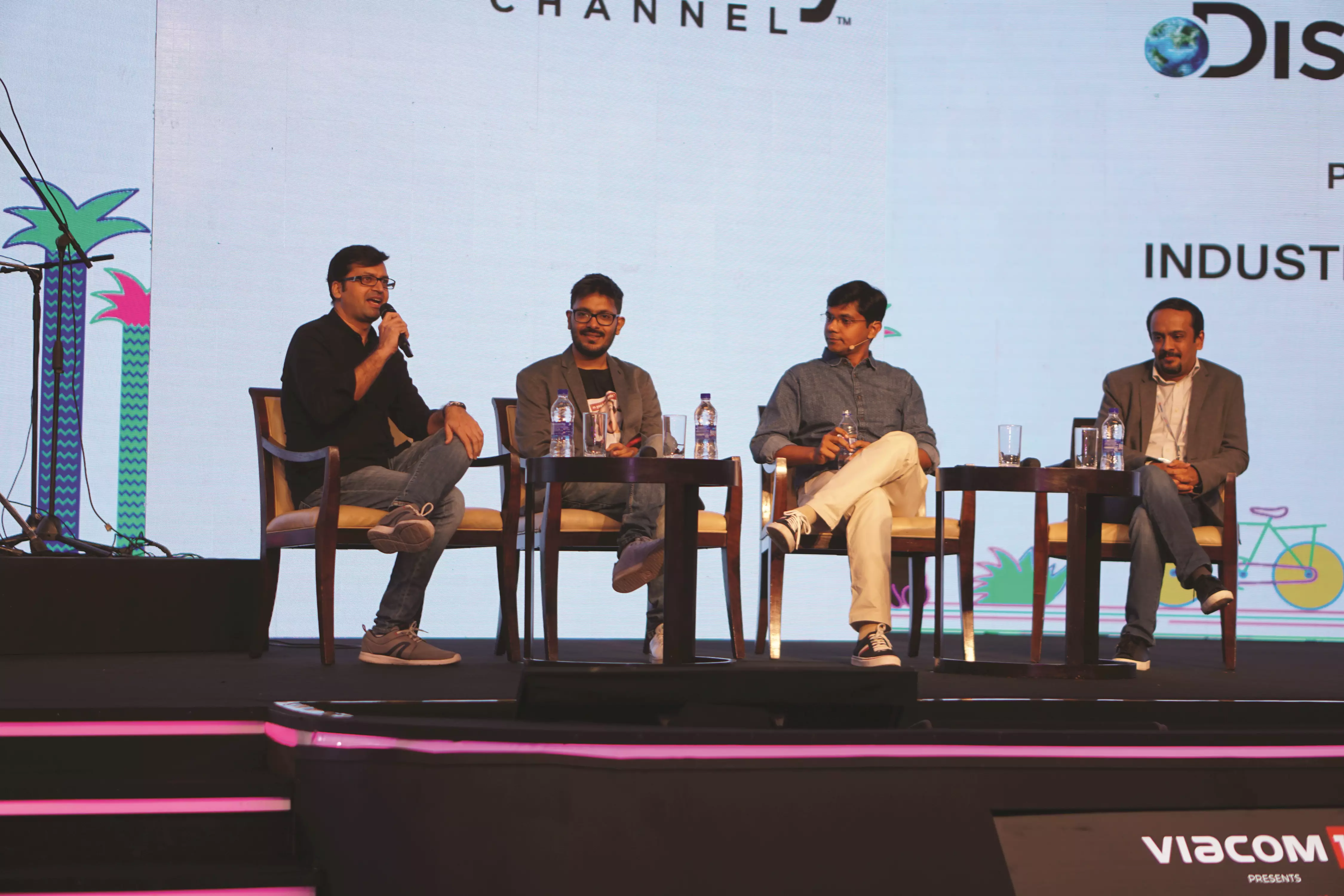
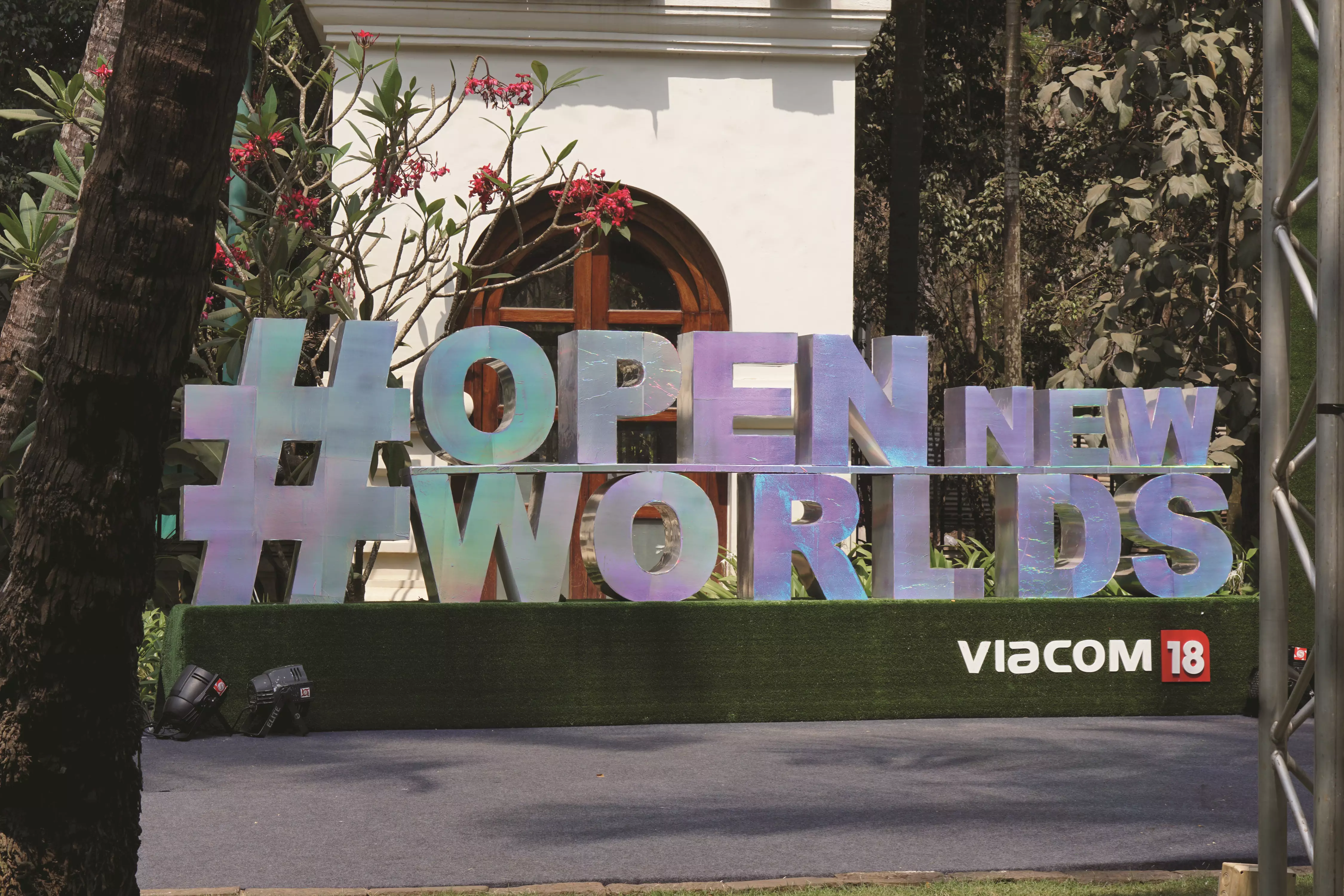
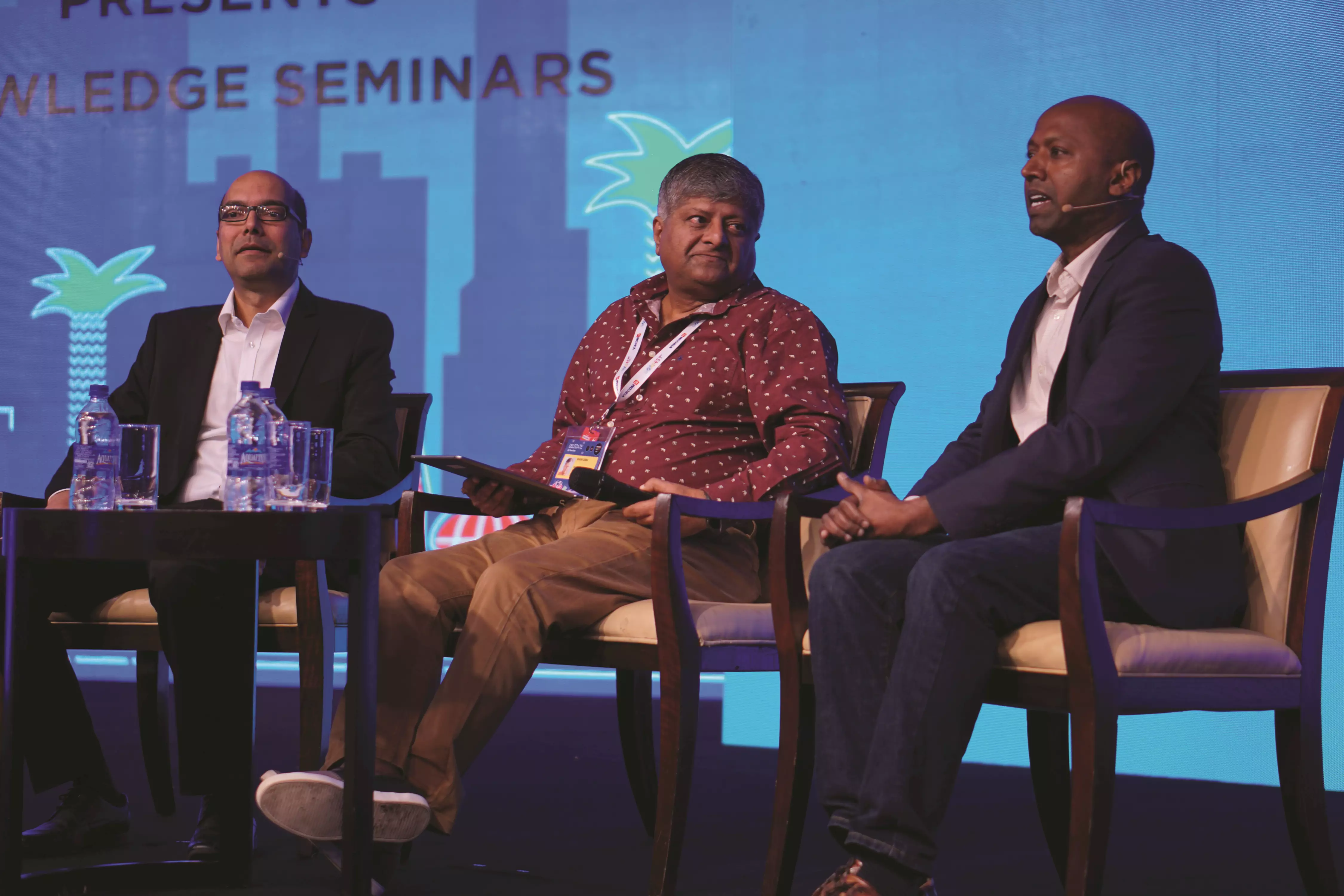
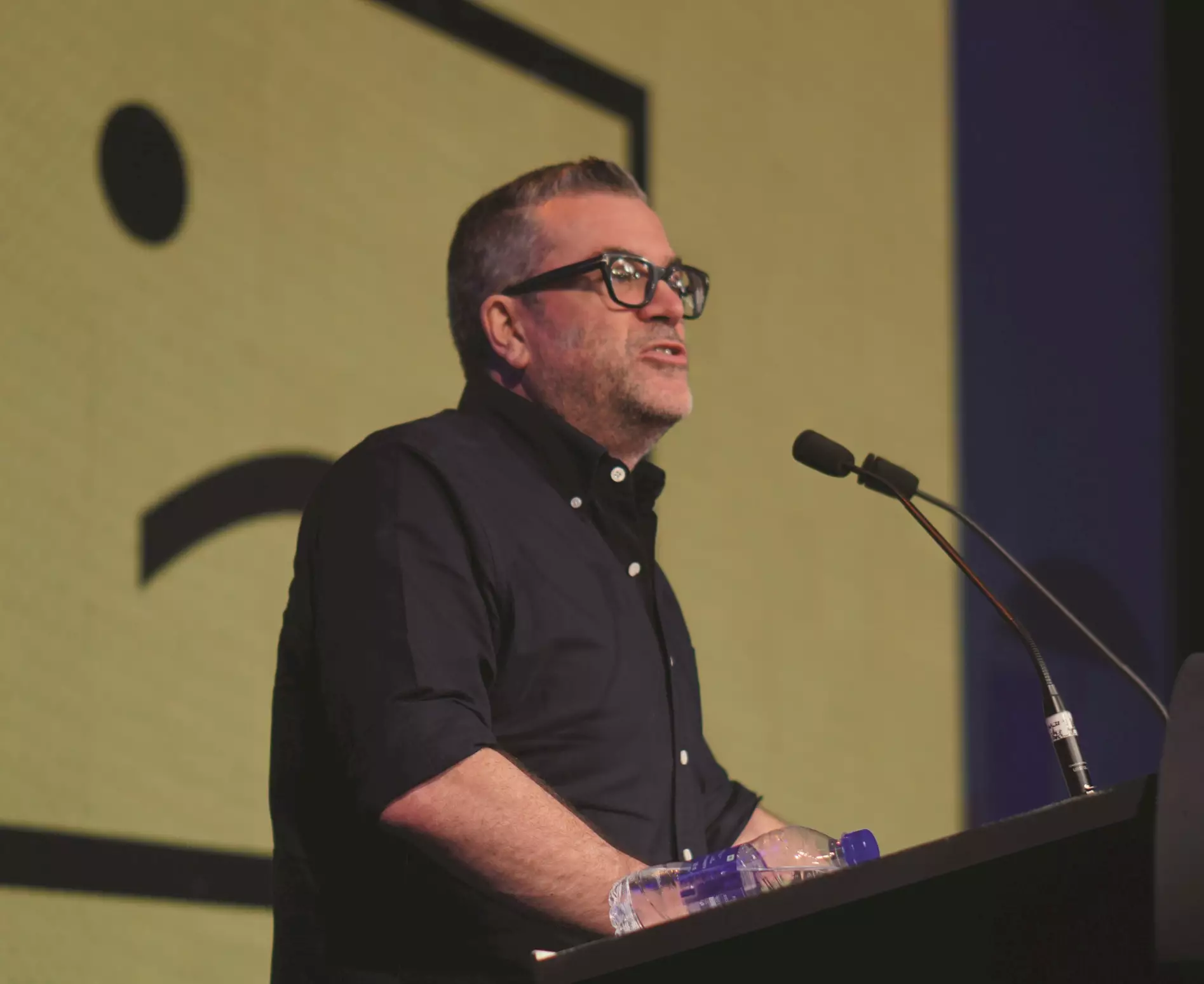








 See All
See All